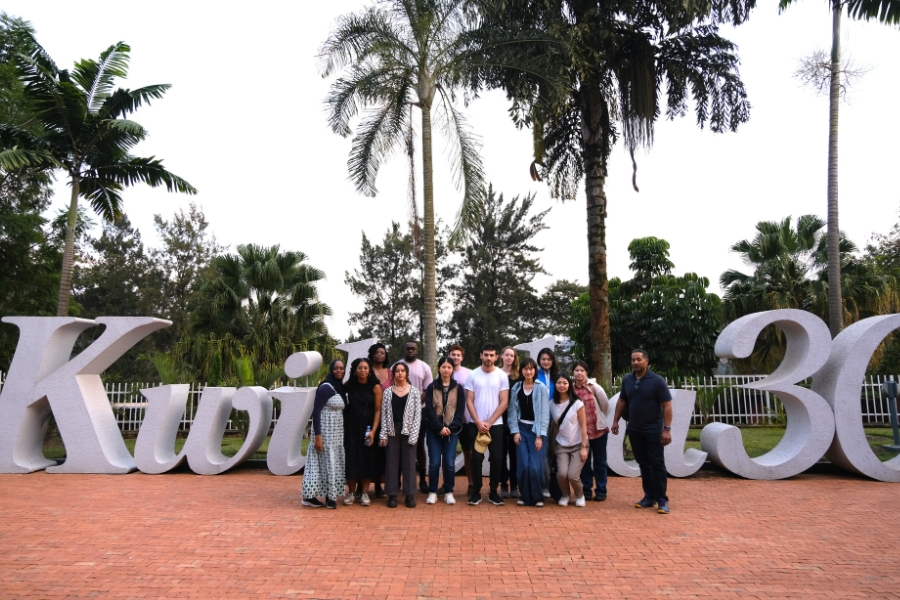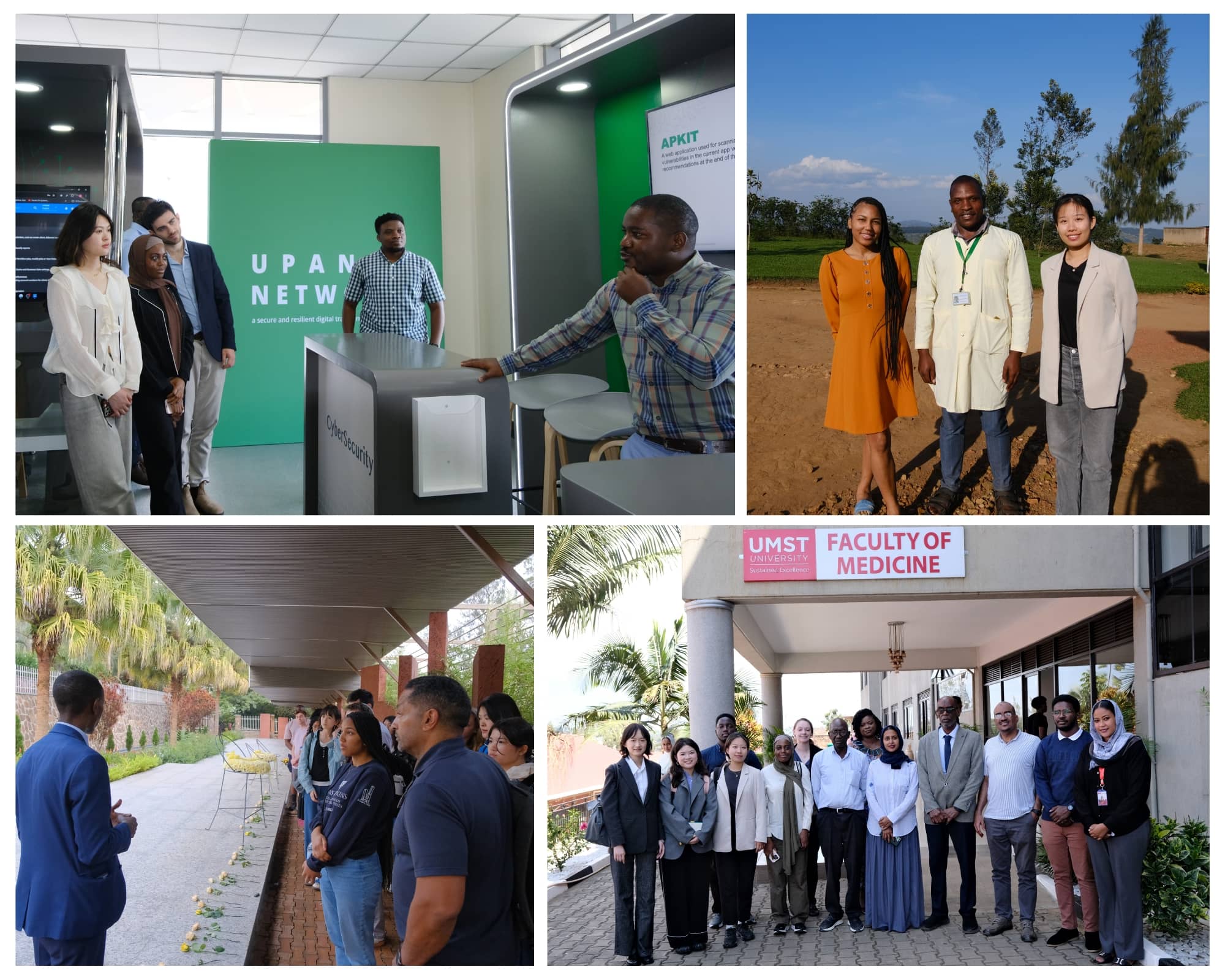In Study Trip, an Up-Close View of Rwanda’s Digital Transformation Initiative

In January 2025, 16 Johns Hopkins SAIS students and a faculty member travelled to Kigali, Rwanda for the inaugural Responsible Digital Development: Africa Study Trip. The trip was the culmination of their fall course, which focused on how technology is transforming development; the unintended consequences, risks and harms that may arise from technology deployment; and frameworks that enable ethical consideration of the choices involved in technology development.
“Information technology has been a cornerstone of Rwanda's development plans,” said Professor Magdi Amin, the course instructor and SAIS alumnus. “The Rwandan government has invested heavily in ICT infrastructure to position the country as a regional tech hub. Rwanda's strategic documents, notably Vision 2050 and the Smart Rwanda Master Plan, underscore ICT as central to the country’s development goals, including becoming an upper-middle-income nation by 2035 and a high-income country by 2050. However, Rwanda remains a resource-constrained low-income country. The class focused on how the country can best achieve its 2050 Vision responsibly and efficiently.”
As part of their trip, the students met with key stakeholders working on these issues: in government, education, and nonprofit sectors. This included the Hon. Paula Ingabire, Rwanda’s minister of ICT and innovation; Hon. Joseph Nsengimana, minister of education; and Eric Kneedler, a SAIS alumnus who serves as U.S. ambassador to Rwanda. They also met with officials at Carnegie Mellon University Africa, Rwanda Development Board, Access to Finance Rwanda, IREMBO (the country’s e-government portal), and Norrsken House Kigali (Africa’s biggest tech hub).
“My favorite part of the trip was talking to the students at Carnegie Mellon University Africa, who shared a wealth of machine learning and AI projects with us,” said Yanglihong Xiao, a Master of Arts in International Relations (MAIR) student. “Their commitment to ensuring equal access to technology—like developing a large language model in Swahili—so that AI benefits the global majority, made me more aware of the development gap between developed and developing countries. Their passion and optimism gave me hope for the future of this land.”
Students on the study trip were divided into teams focused on the big issues of responsible digital development, including digital infrastructure, healthcare, e-government, and education. “This experience was enriched by my teammates,” said Hadiza Musa, a second-year MAIR student. “Working alongside two brilliant peers made the journey intellectually stimulating, and I also had the chance to bond with other SAIS students outside the classroom. I am incredibly grateful for this opportunity.”
Rwanda's commitment to digital transformation is positioning the nation as an emerging leader in digital innovation in Africa. Sustained progress requires addressing persistent gaps in infrastructure, talent development, healthcare interoperability, e-government integration, and educational equity. By tackling these subjects in their research, SAIS students hope to have a positive impact on Rwanda’s ambition to become a digital-driven, inclusive, and economically vibrant nation.
Enjoyed reading about Rwanda’s Digital Transformation Initiative? Explore all that our Washington, D.C. campus has to offer.